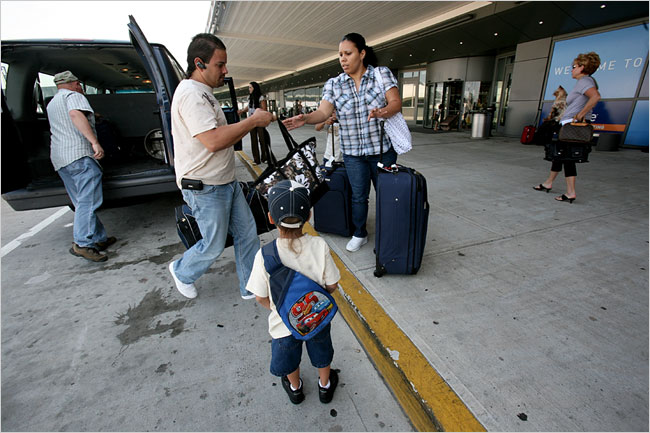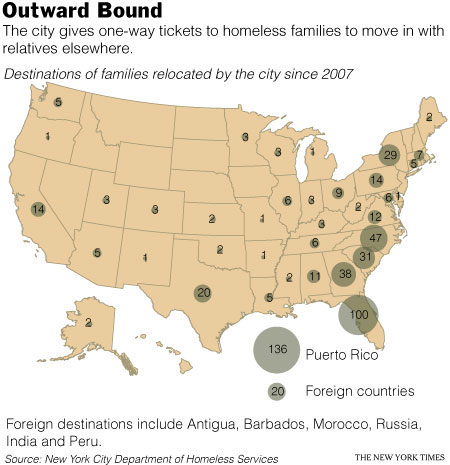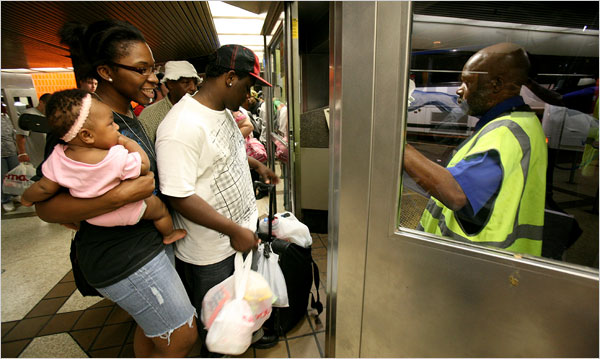|
|
| Want to send this page or a link to a friend? Click on mail at the top of this window. |
More Special Reports |
| Posted July 30, 2009 |
|
New York Region |
| New York Aids the Homeless With One-Way Tickets Home |
|
|
|
 |
|
|
MICHELLE V. AGINS/THE NEW YORK TIMES |
|
| Justin Little and Eugenia Martin, with Inez, returned to North Carolina after only a few days when relatives paid their back rent. |
|
By JULIE BOSMAN |
|
|
|
 |
|
|
|
 |
|
MICHELLE V. AGINS/THE NEW YORK TIMES |
| Hector Correa and Elizabeth Mojica were at Kennedy Airport on Tuesday to fly home to puerto Rico, to stay with her father. |
| Wehaitians.com, the scholarly journal of democracy and human rights |
| More from wehaitians.com |